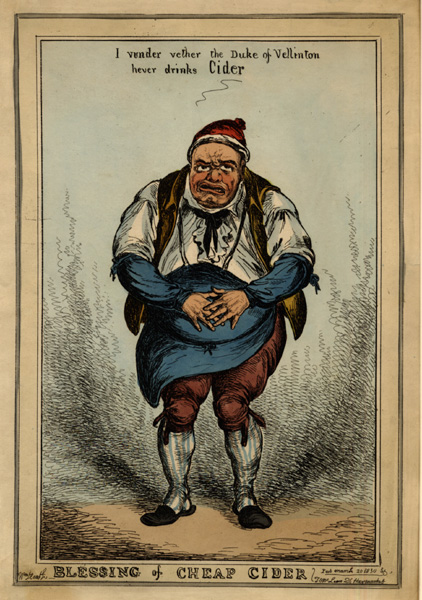NON-SENSE AND SENSIBILITY
(British Drawings and Prints of Two Centuries – Plus a Few Precursors)
(British Drawings and Prints of Two Centuries – Plus a Few Precursors)
- Laroon, The Quarrel
- Hollar, Glastoniensis
- Hollar, Landscape with Herdsmen
- Smith, Mr. Will: Richards
- Hogarth, Southwark Fair
- Smith, The Virgin Mary
- Hogarth, Midnight Modern
- Robinson, Banquet Piece
- att. to Vanderbank, Senesino
- Beauclerk, Street Musicians
- Haward, Mrs. Siddons
- Gillray, Comfort to the Corns
- Cheesman, The Seamstress
- Anonymous, Diamond
- Rowlandson, Gaffers
- Bartolozzi, Miss Farren
- Anonymous, Beatrice Fishing
- Say, Miss Mellon
- Rowlandson, The Poacher
- Smith, Narcissa
- Cruikshank, The Cholic
- Vendramini, Strawberrys, Scarlet
- Cruikshank, A Catalanian PicNic
- Morland, Peasants Resting
- Cruikshank, Sales by Auction!
- Daniell, Joseph Haydn
- Williams, Leap Year
- Finch, In the Park
- Cruikshank, A Consultation
- Anonymous, Duck Shooting
- Heath, A Pleasant Draught
- O’Neill, The Mill
- Cruikshank, Hint to the Blind
- Craig, Trees
- Heath, Blessing of Cheap Cider
- Calvert, The Brook
- Calvert, Cottage and Trees
- Lisle, I’d be a butterfly
- Palmer, Early Plowman
- Leitch, Shepherd
- Whistler, La Vieille aux Loques
- Haden, A Water Meadow
- Whistler, The Brothers
- Cameron, The Palace
- Strang, The Cause of the Poor
- Detmold, Long-Eared Bat
- Detmold, Phoenix
Blessing of Cheap Cider
Etching with hand coloring, 1830, British Museum N.D.; Walpole Library 830.03.20.01, 372 x 261 mm. Fine, strong impression with vivid coloring on wove paper, with good margins top and bottom, narrow margins at the sides; glue stain verso. The man is obviously afflicted with stomach trouble, but less obviously wonders whether the “Duke of Vellinton” ever drinks cider. Wellington became Prime Minister in 1828. A strict Tory conservative (though in favor of Catholic Emancipation), he remained unaware of the vast changes in his country brought on by the industrial revolution and was almost totally out of touch with the plight of the common people. He generally resisted change until it was upon him. And so, his countryman wonders, does the Duke feel his pain?
![]()
